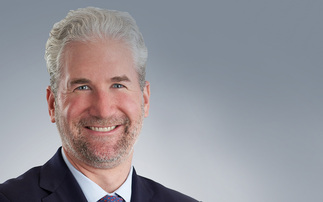Welcome to the first in a four-part series from Standard Life Investments, highlighting the opportunities in emerging markets.
Chair: Welcome to this debate, in association with Standard Life Investments, on global emerging markets. This first section is called ‘The diverging world of emerging markets' and I'm joined by Alistair Way, Mark Vincent and Alex Wolf from Standard Life Investments, Tom Becket from PSigma Investment Management, Kirsten Boldarin from Stonehage Fleming Family & Partners and Minesh Patel from EA Financial Solutions.
Emerging markets continue to diverge - the BRICs, for example, are all going through different things at the moment. Are they still together enough to look at as a single entity?
Alex Wolf: We believe it is impossible to look at emerging markets as one homogenous entity. There is polarisation between the large emerging markets and that trend is set to continue. If you look at the world today, you have slowing Chinese growth, a collapse in oil, a relatively weak external demand environment, a strong US dollar and, at some stage, Fed rate hikes. It is the countries that have strong and sustainable domestic drivers for growth that will prosper in this environment.
Should we define exactly what we mean by developing, emerging and frontier markets - the edges merge a bit don't they?
Mark Vincent: Our approach is to regard anything that is not developed as a potential hunting ground for investment ideas. There is a lot of arbitrariness about what goes into each particular benchmark
If you look at a place like Nigeria, for example, is that a genuine frontier market which tends to act on its own?
Mark Vincent: Right, but we've also had all the disruption in Egypt over the past couple of years for example and that's considered an emerging market. There are some markets in the frontier benchmark that are much more stable than Egypt has been.
Tom, do you regard emerging markets as homogenous?
Tom Becket: We define frontier, emerging and developed markets as three distinct asset classes and even within emerging, there are a lot of differentials. As asset allocators, we have to break down the difference between these countries as economies and as investment opportunities, and that polarisation has never been greater.
Kirsten, what do you think is driving this change in emerging markets?
Kirsten Boldarin: A lot of it comes from people's desire to look for yield in less obvious places. A lot of obvious places have been priced up to such an extent that investors feel the need to expand their risk horizon into more racy areas to benefit from some kind of income flow.
How do you access emerging markets, Alistair?
Alistair Way: In terms of investing in stocks, there is a hugely liquid and varied investment universe for us. We calculate there are around 3,000 stocks across emerging and frontier markets, which trade over a million dollars a day. We think this is very fertile hunting ground. For some markets, we require instruments like P-notes or GDRs, but on the whole, liquidity is not an issue. It's about finding the right companies exposed to the right changes that we look for.
Minesh, how do you look at these widely differing markets?
Minesh Patel: BRIC was a term coined by Goldman Sachs and became an acronym for emerging markets as a whole. I don't think it's fair to compare India to Brazil or Russia for example: the dynamics are entirely different and the main divergence is the political stability - or lack of it - in some countries. The search for yield is important within that whole setting of divergence. The skill of SLI and others is to find that divergence and where the opportunities are.
Kirsten, how do you sell the idea of emerging markets to clients?
Kirsten Boldarin: Most families want to have some kind of international exposure within their portfolios and want to be global citizens. Excluding emerging markets from your portfolio is a mistake because, ultimately, that's where the future growth is going to come from and you want a portfolio to capture some of that.
Tom, has your view of emerging market changed over the past five years or so?
Tom Becket: I think the term is antiquated and not relevant for places like China, which is actually, in many ways, more developed than many countries in the ‘developed' universe. The whole concept of looking at emerging markets as risky has to be turned on its head. Look at the debt markets for example: would you rather lend to a country where you can achieve yields of 6%-7% and is cash rich and growing fast, or to the chaotic developed world, which is massively debt heavy and basically pays you nothing?
What I find attractive about emerging markets is that, five or six years ago, everyone loved the asset class, and the big surprise is how quickly they have gone from being so loved to so hated. On a long-term valuation and growth argument, emerging markets deserve a high weighting in portfolios.
In the light of what the panel has been saying, can you give us an overall macro view of where you think emerging markets are right now?
Alex Wolf: As Tom just mentioned, emerging market have changed a lot over the past couple of years. The boom years of the 2000s have resulted in emerging markets that are much less vulnerable than they were in the 1990s. From a financial and macro stability point of view, they are much more resilient. However, you are not going to see the rapid growth you saw in the 2000s.
As I mentioned before, the drivers of growth are very different. Now, it's going to be more structural reform driven and there is less of a tailwind from Chinese growth and commodity demand. You will still see faster growth in the emerging world than the West but this will be more moderate, and hopefully more sustainable, than in the boom years of the 2000s.
What is your take on the currency wars that seem to be beginning?
Mark Vincent: The consensus is that we're in a period of dollar strength and we would broadly go along with that as a house. There are countries that suffer more from that, whereas exporters benefit from it. We are seeing countries competing with each other to devalue to be more competitive, which is not a very healthy dynamic. But by being exposed to exporters, there are ways to express a view on currency weakness in portfolios.
Alistair Way: You have to be careful to differentiate by industry. In an industry like auto manufacturing, currency movements are important in terms of tracking competitive advantage. But most areas of technology and consumer electronics are outsourced to the same factories these days so, for industries like that, it's more important to follow who is on the cutting edge of tech development and branding and consumer awareness to identify the next global winners.
In the last few years, developed markets have done extremely well, emerging markets less so. Are flows into emerging markets are now such that, if there was a fall in developed markets in the next few years, EMs would hold up better?
Tom Becket: From a valuation standpoint, valuations are more on the side now of emerging markets. My personal view would be that if we do see a global market sell-off, I don't see why emerging markets couldn't outperform on the downside, which is different to what everyone expects and the inverse of what's happened in the last ten years where EMs have mostly led the way both up and down.
Mark Vincent: The income theme has come up a number of times from different panellists. What we're seeing across emerging markets is that, if you compare the amount these countries and companies are paying out compared to the average over the last ten years, in virtually every case, it's meaningfully higher. The leverage of these companies is such that they have scope to continue to increase payouts so there is scope for the yield story to continue.
Kirsten Boldarin: When you look beneath the surface, there's a lot of divergence between different emerging market sectors and regions. So, in aggregate, they look reasonably priced, but when you look beneath that, certain sectors are actually quite expensive, such as consumer staples, while commodity sectors are very cheap and that is pulling down the aggregate.
Where are the less obvious opportunities within emerging markets?
Alistair Way: I still think frontier markets are overlooked, partly as liquidity is not as high as in the bigger emerging markets, but also partly because they're off the beaten track and require more effort. In terms of the quality of the companies, strength of the longer-term growth opportunity, quality of management and more importantly, the lack of correlation with other emerging market risks, there's a huge opportunity out there. Some of the Middle Eastern countries in particular are interesting us at the moment.
Mark Vincent: The market often makes blanket assumptions. With countries that are oil exporters for example, when you get a move in the oil price like we've just had, everything sells off. You've got to make volatility work to your advantage and big moves like that can allow us to pick up some interesting opportunities.
Minesh Patel: I still think emerging Asia has high potential. Although India is still booming, Sri Lanka and Pakistan still have significant upside. Countries that invest in education have a propensity for growth and that could also apply to Kuwait and countries in that region.











